Click on images to enlarge
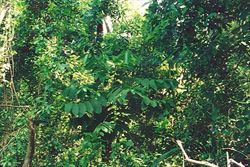
habit (Photo: Ken Murray, Cairns City Council)
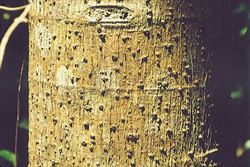
bark on main trunk (Photo: Ken Murray, Cairns City Council)
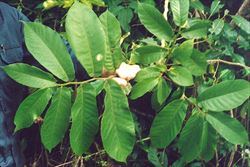
leaves (Photo: Ken Murray, Cairns City Council)
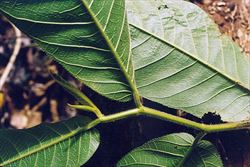
close-up of younger stems and leaf undersides (Photo: Ken Murray, Cairns City Council)
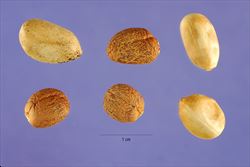
close-up of seeds (Photo: Steve Hurst at USDA PLANTS Database)
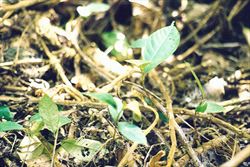
seedlings (Photo: Ken Murray, Cairns City Council)
Scientific Name
Castilla elastica Sessé
Synonyms
Castilloa elastica Cerv.
Family
Moraceae
Common Names
castilla rubber tree, Mexican rubber tree, Mexican rubertree, Panama rubber, Panama rubber tree, Panama rubbertree
Origin
Native to southern Mexico, Central America (i.e. Belize, Costa Rica, El Salvador, Guatemala, Honduras, Nicaragua and Panama), and the north-western parts of South America (i.e. Columbia and Ecuador).
Naturalised Distribution
Naturalised in northern Queensland and possibly also on Christmas Island.
Also widely naturalised elsewhere in the tropics, including on several Pacific islands (i.e. in American Samoa, Western Samoa and French Polynesia).
Notes
In mainland Australia, Panama rubber tree (Castilla elastica) is only known to be naturalised within the boundaries of the Cairns City Council. Isolated infestations have been located in the Kamerunga and Lake Placid areas, where it is invading rainforest gaps and margins. This species is listed as a priority weed in far northern Queensland and has been targeted for eradication.
Panama rubber tree (Castilla elastica) is also regarded as a potentially significant environmental weed on Christmas Island, where it has spread from remnant plantations and become naturalised in nearby intact rainforest vegetation.

